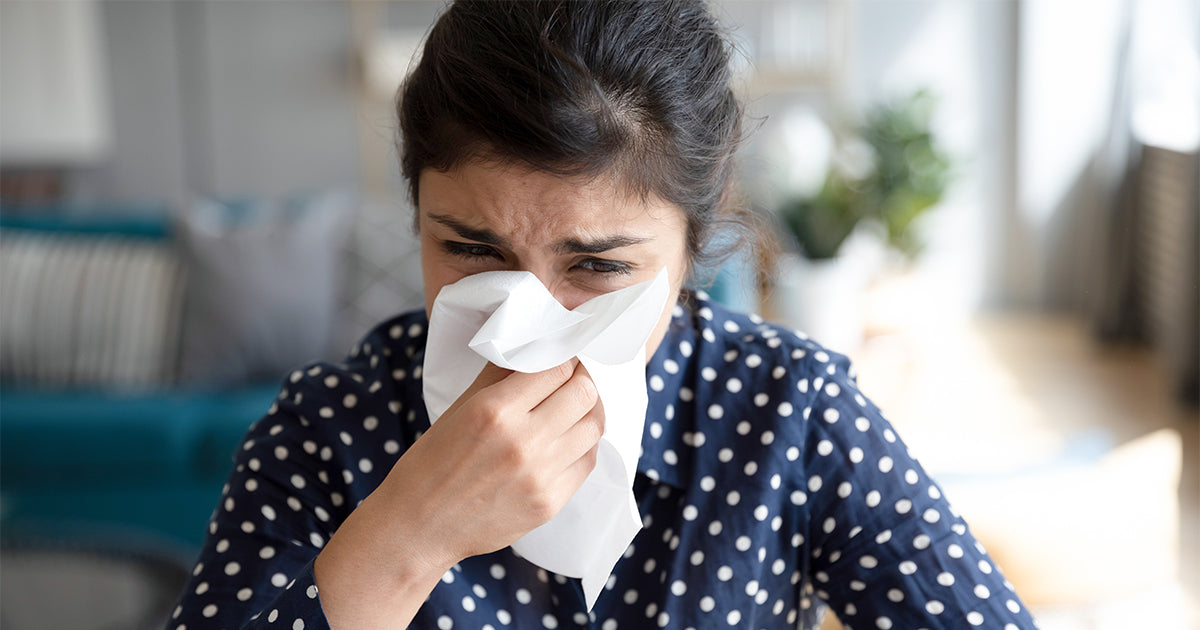Can Allergies Cause Acne? What the Facts Say

Acne has a number of sources. What you eat and how much you sweat all play a role.
Ultimately, acne is the result of sebum trapping bacteria and other debris in your skin’s pores. This results in inflammation, but there are factors that can result in an overproduction of sebum or bacteria present on the skin.
Here’s what you need to know about allergies impacting acne breakouts.
Allergies and Acne
People can be allergic to everything from peanuts to tomatoes. But do these allergies cause more than a rash and the throat to close up?
Currently, there’s no evidence to suggest that allergic reactions cause acne. However, an allergy can worsen acne symptoms.
For instance, acne results in red skin, and an allergic reaction can lead to the same outcome. Additionally, allergies can cause a person to rub their skin, which can break pimples and worsen one’s look.
Dry Skin and Acne
Another way allergies relate to acne comes down to dry skin. For some people, eating eggs or cheese can dry out the skin.
Dry skin can cause an excess buildup of dead skin cells. These can, in turn, become trapped in your pores by sebum, resulting in inflammation.
How to Treat Allergy-Related Acne
For starters, you should maintain a healthy skincare regimen. While allergies may not directly cause acne, you still want your skin to be as healthy as can be, so it can better fend off foreign contaminants.
You also want to treat your allergies. That means avoiding chocolate, nuts, or anything else you’re sensitive to.
In the event you do have an acne breakout, you should take steps to avoid rubbing your face and potentially breaking a zit. And of course, only use gentle facial cleansers.
Can Food Allergies Cause Acne?
No, food allergies can’t cause acne. You should naturally avoid what you’re allergic to for the sake of your health, but it won’t make too much of a difference if you’re already prone to acne.
Top Common Allergenic Foods That Can Cause Acne
With that being said, certain foods have been linked with acne in the past. In addition to avoiding what you’re allergic to, you may want to watch out for the following if you tend to get acne breakouts.
1. Dairy
High glycemic levels have been linked with acne. While milk itself is a low-glycemic beverage, many products that include milk are high. That means the creamer you add to your coffee may exacerbate acne conditions.
2. Fast Food
Fast food consists of highly processed meats, oils, and fats. It can cause your blood sugar levels to spike, and that increase in hormonal levels can increase the skin’s production of sebum.
3. High Glycemic Foods
High glycemic foods aren’t good for acne. These include:
- Processed snacks like pretzels and corn chips
- Sugar-containing beverages
- White bread
- French fries
- Mashed potatoes
- Cheeseburgers
- Pizza
4. Vegetable Oils
Vegetable oil can inflame the hormones that worsen acne roughly an hour after you eat. Most processed foods contain vegetable oil to an extent.
5. Refined Grains
Refined grains spike your insulin levels. This quickly creates conditions that exacerbate acne. Instead of white bread, stick with whole grain.
6. Processed Meats
The body can have a hard time digesting antibiotics and hormones found in processed meats. It also doesn’t help that processed meats like burgers are often served on a refined grain bun.
7. Food Additives
Again, your body can have a hard time breaking down processed food additives. This can worsen acne by spiking hormonal levels.
References:
“Are These Tiny Bumps on My Face an Allergic Reaction?” American Academy of Dermatology Association. https://www.aad.org/public/diseases/acne/acne-products-avoid-allergic-reaction
“Can the Right Diet Get Rid of Acne?” American Academy of Dermatology Association. https://www.aad.org/public/diseases/acne/causes/diet

Leave a Comment